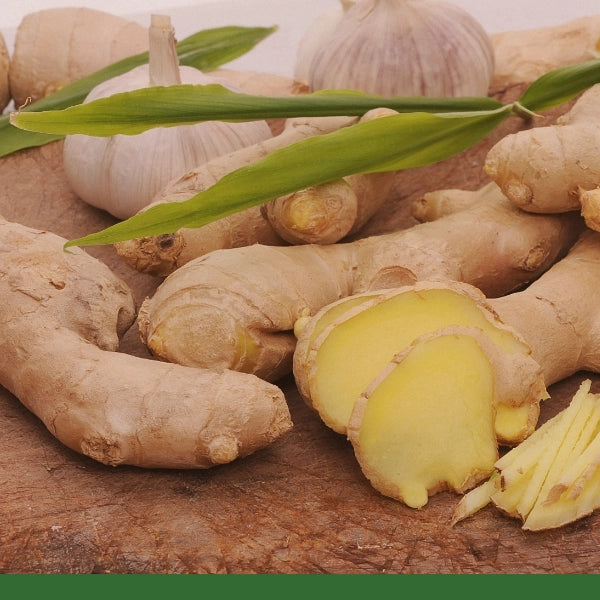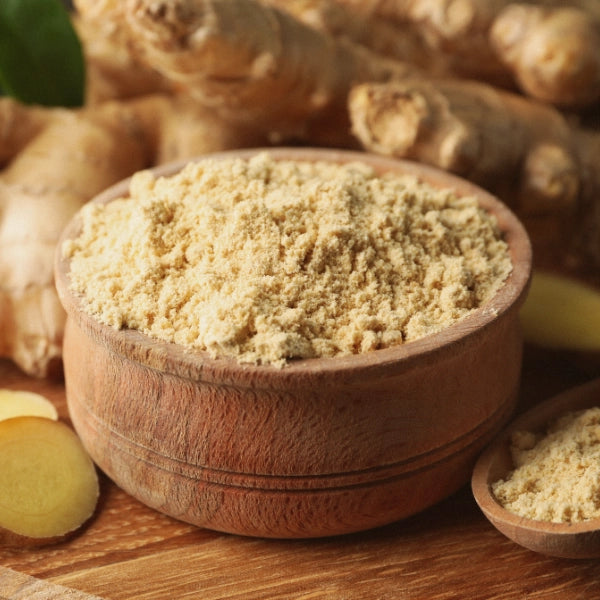Ginger Root, Powder (Zingiber officinalis) - Dried Herb, Organic
- Regular price
- $15.35
- Sale price
- $15.35
- Regular price
-
- Unit price
- per
Couldn't load pickup availability


Ginger's genus name, Zingiber, is derived from the Greek zingiberis, which came from Sanskrit sringabera, meaning "horn shaped". It belongs to the Zingiberaceae family, same as turmeric, cardamom and galangal. Ginger is native to Southeast Asia, where it has been used as a spice for at least 4,400 years. Ginger is a herbaceous perennial with thick branching rhizomes, stout upright stems, and large lancelot, bright green leaves about 8 inches long. The flowers are yellow-green with a deep purple lip and yellow spots and markings. Ginger plants will grow to about 2-3 feet tall.
Ginger was described by the Chinese in the Han dynasty (AD 25-200) as the "universal medicine". In ancient India ginger was used to treat digestive upsets and intestinal gas, and to stimulate circulation in the body's extremities. The Greeks and Romans imported it from the East in AD 200 and was used as a medicine for intestinal parasites. From the 14th century it was the second most popular spice after pepper in England. In the 16th century it was taken by the Spanish from the East to America. Chinese recognize ginger as a whole body Yang tonifying herb that is good for warming the body and lifting the spirit. In Ayurvedic medicine, ginger is used to treat pain, arthritis and blood platelet clumping. In Traditional Chinese medicine is ginger used for common cold, nasal congestion, coughing, food poisoning, loss of appetite, morning sickness, sore throat or to relieve arthritic pain.
Properties:
The flavour is pungent, somewhat peppery and slightly sweet with strong and spicy aroma. Ginger is warm and dry in its nature. It has affinity towards gastrointestinal tract, stomach, spleen, lungs, sinuses, blood pressure and circulation, immune and musculoskeletal system. For motion sickness and nausea combine ginger with peppermint, chamomile, fennel or licorice. To boost the immune system use ginger in combination with angelica, astragalus, elderberry or echinacea, adding a bit of honey and lemon will take your home made remedy to the next level.
How to use:1 teaspoon of dried Ginger Root to one cup of boiling water. Steep for 15 minutes, strain and drink up to three cups a day.
Or pour 1 cup boiling water over 1/4-1/2 teaspoon Ginger Powder and steep for 10 minutes. Pour liquid tea off and discard powder.
Cautions & contraindications:
Ginger is generally considered as safe for young and old, although Ginger may possibly cause mild heartburn in some.
This information is for educational purposes only and is not intended to diagnose, treat or cure any disease or illness. Please consult your healthcare provider prior to the use of this product if you are pregnant, nursing, taking medications or have a medical condition. Individual results may vary.

